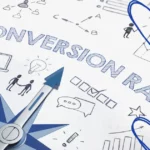Consumer psychology is a topic not often covered in small business marketing, maybe because as small business owners we are so busy trying to grow and market our business that we turn to traditional digital marketing channels like Google advertising, social media and email marketing, rather than investing time in how environmental shifts may be impacting the way our consumers behave and purchase.
Taking some time to understand your consumers’ psychology and stepping into their shoes can really pay off. Because by understanding what they’re thinking and what they’re feeling we can better understand the problems we can solve for them.
This means better connection before, during and after their plans to purchase.
As a small business owner you may have gone through the process of identifying your ideal consumer when you started your business, or when you released your latest product or service.
But as the Greek philosopher Heraclitus said ‘change is the only constant in life’. So if we look at the phenomenal amount of change that has occurred around us over the past couple of years (COVID outbreaks, lockdowns, the war in Ukraine, the energy crisis, higher than expected inflation and interest rates and labour shortages, to name a few) I’m sure you’ll agree that these changes must have had a significant impact on the psychology of the people we’re selling to.
From their thoughts and feelings to their behaviours and actions.
As small business owners we’re better placed than most to connect with these customers directly (think emails, comments on posts and DMs) so let’s use these micro interactions to keep our fingers on the pulse about how consumers are feeling, and what that means for our marketing.”
I recently read ‘What’s the next big thing in small business marketing?’ and found some great insights for you to consider:
- Avoid information overload
- Produce short and clear videos or infographics
- Make easily digestible content
- Engage niche micro-influencers with good engagement in brand collaborations
- Beware greenwashing: your social consciousness initiatives needs to be more than words as consumers are looking for proven authenticity.





